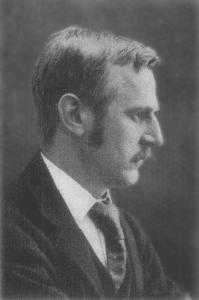Graham Wallas
(1858-1932)
 Graham Wallas has been described as a sociologist, a social psychologist, a political scientist, a practical politician, and an educator.
A professor of Political Science and founding faculty member of the London School of Economics, he was educated at a time when the behavioral and
social sciences were just emerging as fields of study distinct from their roots in
philosophy and biology. In his scholarly work and his lifelong involvement in the social and political issues of his time, Wallas assumed that
understanding these complex issues required an interdisciplinary perspective.
Graham Wallas has been described as a sociologist, a social psychologist, a political scientist, a practical politician, and an educator.
A professor of Political Science and founding faculty member of the London School of Economics, he was educated at a time when the behavioral and
social sciences were just emerging as fields of study distinct from their roots in
philosophy and biology. In his scholarly work and his lifelong involvement in the social and political issues of his time, Wallas assumed that
understanding these complex issues required an interdisciplinary perspective.
Modern industrial society owed much of its progress as well as its complexity to the scientific and technical advances of the previous
century. Wallas recognized both the problems that resulted from these advances as well as the potential for science to revolutionize a society's
approach to social policy. He was committed to the study of social issues using the scientific method, and he is credited with undermining the
prevailing theories of government that assumed that people's political beliefs and behaviors were based on a rational analysis of their own interests.
According to Wallas,
such theories failed to take into consideration what had already been learned about human motivation by the psychologists of his time.
Although his work drew attention to the role of emotion and 'instinct' in political behavior, Wallas remained firm in his conviction that
effective social policy required careful rational thinking. From one of his earliest books, Human Nature and Politics (1908), to his last, Social
Judgment (1934), published posthumously, Wallas emphasized the importance of proactive, innovative thinking in government in contrast to the reactive,
intuitive, decision making that he saw as characteristic of an earlier era, but which continued despite the increasing complexity of modern
society. Here we find his motivation for writing The Art of Thought (1926), a book intended as a guide to improving the process of creative thinking.
To Wallas, social invention was critical in order to address social problems that he attributed to a a mismatch between human nature
and the organization of modern society. In The Art of Thought, Wallas argued for the importance of innovative thinking and asked how it could
be achieved. Drawing on his own experience and the subjective accounts of other creative thinkers, he proposed a model of creative
thinking and considered ways in which it could be cultivated, both through individual effort and through improvements in the educational system.
Graham Wallas bibliography
Home
This page was updated last on March 7, 2014
 Graham Wallas has been described as a sociologist, a social psychologist, a political scientist, a practical politician, and an educator.
A professor of Political Science and founding faculty member of the London School of Economics, he was educated at a time when the behavioral and
social sciences were just emerging as fields of study distinct from their roots in
philosophy and biology. In his scholarly work and his lifelong involvement in the social and political issues of his time, Wallas assumed that
understanding these complex issues required an interdisciplinary perspective.
Graham Wallas has been described as a sociologist, a social psychologist, a political scientist, a practical politician, and an educator.
A professor of Political Science and founding faculty member of the London School of Economics, he was educated at a time when the behavioral and
social sciences were just emerging as fields of study distinct from their roots in
philosophy and biology. In his scholarly work and his lifelong involvement in the social and political issues of his time, Wallas assumed that
understanding these complex issues required an interdisciplinary perspective.